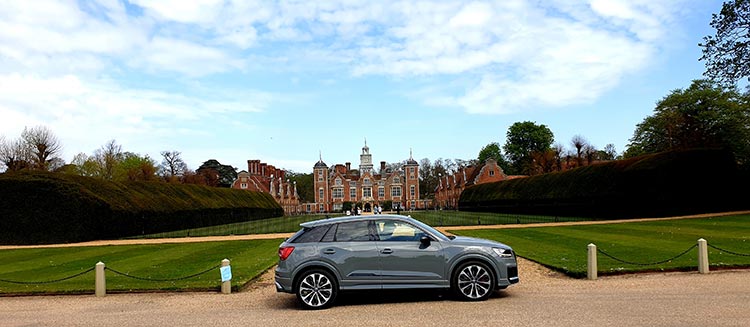Young Drivers Rank Their Biggest Concerns on the Road
- 40% of respondents selected ‘driving at night’ as a big concern
- Just 7% of young drivers are worried about ‘being distracted by an electronic device’
- 93% of young drivers rank ‘another driver’s behaviour on the road’ as their biggest concern
- Other great concerns for young drivers include driving somewhere new, getting lost and the motorway
- The factors of least concern to young drivers: ‘poor condition of the roads’ and ‘the drink driving limit’
Amid statistics showing a fifth of drivers are involved in an accident during their first year on the road, the Department for Transport (DfT) has announced new (young) drivers could be banned from the roads at night. The scheme could extend to include restrictions like a minimum learning period and not driving with passengers under a certain age.
However, it is interesting to consider what new, young drivers believe to be the biggest concerns on the road, as they embark on a lifetime behind the wheel.
This is something private reg company click4reg.co.uk sought to explore in a survey sent to 2,424 18-24-year-olds, which asked participants to select the biggest concerns as a new driver. Of the 25 concerns listed, the following 10 stood out as most popular:
With road rage on UK roads at its peak, it’s no surprise 93% of new drivers aged 18-24 told private reg company click4reg.co.uk that ‘another drivers’ behaviour on the road’ is their biggest concern; tailgating mentioned on numerous occasions.

The Results
Ranked equally as high, is the prospect of ‘driving somewhere new / unknown’ (93%.) Followed by ‘getting lost’ (73%.)
‘Driving on the motorway’, ‘being in an accident’ and ‘breaking down’ came next – at 73%, 67% and 60% respectively.
Fewer respondents selected concerns like ‘bad weather’ (53%), ‘lack of car maintenance knowledge’ (47%) and ‘large roundabouts’ (47%.)
Interestingly, 18-24 year olds surveyed did not prioritise ‘driving at night’ as a top concern, but it did receive 40% of the vote.
This could suggest a ban on night-time driving for young drivers is no bad thing; clearly, a large majority do not feel confident in this area.
The factors of least concern to young drivers include:
- Sticking to the correct speed limit (13%)
- Running out of petrol (13%)
- Being distracted by an electronic device (7%)
- Poor condition of the roadsg. potholes, unclear markings (0%)
- The drink driving limit (0%)

5 useful tips for new drivers
Private reg company click4reg.co.uk also spoke exclusively with Andrew Jervis, founder and CEO of ClickMechanic, who provided 5 useful tips for new drivers:
Use P Plates
P Plates are commonly used by new drivers to show other drivers that they have recently passed their test. Hopefully, using P Plates will alleviate the pressure to get everything perfectly right. It will also encourage other drivers to show more patience if you experience a little hiccup.
Practise makes perfect
Even if you passed your test with flying colours, the first time you get behind the wheel by yourself – without an experienced instructor or teacher – can be daunting. To practise, take your car out for a spin when the roads are quiet and familiarise yourself with your newfound driving skills. Remember the more hazards on the road, the more hazard awareness needed.
Do your Pass Plus
Pass Plus is an optional, further qualification you can take on completion of your driving test. It will help to place you in situations you might not have experienced during your test, such as driving on rural roads or at night. Plus, it is another great way to refine your driving skills and confidence.
Undertake a basic maintenance course
There is every chance you will encounter issues, such as a tyre puncture or your car not starting, during your time as a driver. Having a basic knowledge of your vehicle, and what can go wrong, is a great way to be more in control when issues arise. Of course, you should check tyres, oil and water levels regularly – especially before long journeys.
Drive in all weather conditions
Every weather condition, be it rain, wind, snow or extreme heat, can affect your car differently. It’s important to gain experience in different conditions so you understand how your car performs, and how best to navigate these potentially tricky situations.















